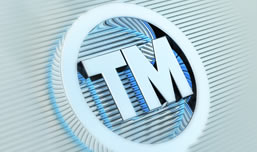Social Media - a review of 2011
2011 was another year in which the legal implications of the use of social media, particularly Twitter, was catapulted into the public's conscience. The power (sometimes destructive) of social media and the legal risks faced by its users and hosts were amply demonstrated.
The widespread disclosure on Twitter of the beneficiaries of anonymised injunctions, notably Ryan Giggs and Sir Fred Goodwin placed unprecedented pressure on the granting of such injunctions and their efficacy. Courts, however, continued to uphold the injunctions even in the face of their widespread breaching on Twitter. The Attorney General also made it clear that Twitter users are not immune from contempt of court proceedings. See our injunction coverage.
A Californian court, on the request of an English local authority, ordered Twitter to disclose the identity of a tweeter who was alleged to have defamed that authority. Twitter and Wikipedia have both announced that they will disclose the identity of their users when required by court to do so.

Reporters now regularly Tweet from courts following the Lord Chief Justice's guidance on when permission to do so would be granted, providing a good deal of real time reporting of trials of wide public interest.
Many people using social media appear to be unaware of the responsibilities that go with being a publisher. The PCC has ruled that, depending on privacy settings, tweets can be public and can be reported in the press, without intruding unjustifiably on the tweeter’s privacy. Guido Fawkes, the political blogger, was summoned to appear at the Leveson Inquiry to address the source of allegedly leaked evidence that he posted. Apple’s dismissal of an employee for gross misconduct because the employee criticised Apple’s products on his Facebook page (in breach of Apple’s social media usage policy) was upheld by an employment tribunal, as it was a fair dismissal. This highlights the benefits to employers of having social media policies in place.
Trip Advisor was reportedly facing an ASA investigation into allegations that astroturfing is prevalent on its site and statements that Trip Advisor provides "trusted advice from real travellers" are misleading. The ASA's remit was extended on 1 March 2011 to cover online content but we are still waiting for the first adjudication which grapples with when use of social media can fall within the responsibility of the advertiser.
 The decision of the CJEU relating to trademark infringement on eBay may widen the circumstances in which a website operator can be liable for user generated content, particularly where it plays an active role in relation to that content or where it should have been aware of the unlawful content. We know, however, from the SABAM/Scarlet CJEU decision (C-70/10) that ISPs cannot be forced to carry out general monitoring of internet content for copyright infringing material. It is likely that this will apply equally to monitoring of social media websites, but we await a further judgment from the CJEU on this topic (in case C-360/10). The English High Court has recently held that Google Inc did not, for the purposes of the Ecommerce Directive, have actual knowledge of unlawful information on its Blogger.com platform because it was not in a position to adjudicate between conflicting claims that material was defamatory unlawful. However, the judge said that there was an arguable case that Google was a publisher for the purposes of the UK Defamation Act so could be liable for publication of the defamatory material. Google could therefore be subject to an injunction (subject to it being enforceable in the US) but not for damages (because of the Ecommerce Directive defence).
The decision of the CJEU relating to trademark infringement on eBay may widen the circumstances in which a website operator can be liable for user generated content, particularly where it plays an active role in relation to that content or where it should have been aware of the unlawful content. We know, however, from the SABAM/Scarlet CJEU decision (C-70/10) that ISPs cannot be forced to carry out general monitoring of internet content for copyright infringing material. It is likely that this will apply equally to monitoring of social media websites, but we await a further judgment from the CJEU on this topic (in case C-360/10). The English High Court has recently held that Google Inc did not, for the purposes of the Ecommerce Directive, have actual knowledge of unlawful information on its Blogger.com platform because it was not in a position to adjudicate between conflicting claims that material was defamatory unlawful. However, the judge said that there was an arguable case that Google was a publisher for the purposes of the UK Defamation Act so could be liable for publication of the defamatory material. Google could therefore be subject to an injunction (subject to it being enforceable in the US) but not for damages (because of the Ecommerce Directive defence).
A UK Parliamentary Joint Committee has recommended that allegedly defamatory posts by identifiable posters can remain online provided a notice of complaint is promptly published beside the material, unless the claimant has obtained a "take-down order", but that anonymous posts should be taken down, unless the publisher obtains a "leave-up" order. This shows the importance of social media intermediaries and their liability for user-generated content in the context of the libel reform debate.
We anticipate that any calls from the mainstream media to regulate social media in a stricter way so mainstream media is not at a relative disadvantage will fall on deaf ears, in light of the negative publicity the press has received arising out of the Leveson Inquiry.
 We anticipate that social media intermediaries will face more requests to identify anonymous users who use the cloak of anonymity, for example, to defame third parties or breach anonymity injunctions. It may follow that more action is taken against users of social media sites. High profile examples of such action (e.g. for defamation or for contempt of court, which is a strict liability offence) may help to tame the wildest excesses of social media use and create a less uneven playing field for mainstream and social media outlets. The stage is set for another exciting and legally challenging social media year.
We anticipate that social media intermediaries will face more requests to identify anonymous users who use the cloak of anonymity, for example, to defame third parties or breach anonymity injunctions. It may follow that more action is taken against users of social media sites. High profile examples of such action (e.g. for defamation or for contempt of court, which is a strict liability offence) may help to tame the wildest excesses of social media use and create a less uneven playing field for mainstream and social media outlets. The stage is set for another exciting and legally challenging social media year.
If you have any questions on this article please contact us.


Adam Rendle
The power of social media, Twitter in particular, was thrust into the limelight in the first half of 2011, before the phone-hacking scandal took over. Social media is set to continue to make (and distribute) the headlines in 2012.
"The stage is set for another exciting and legally challenging social media year."

